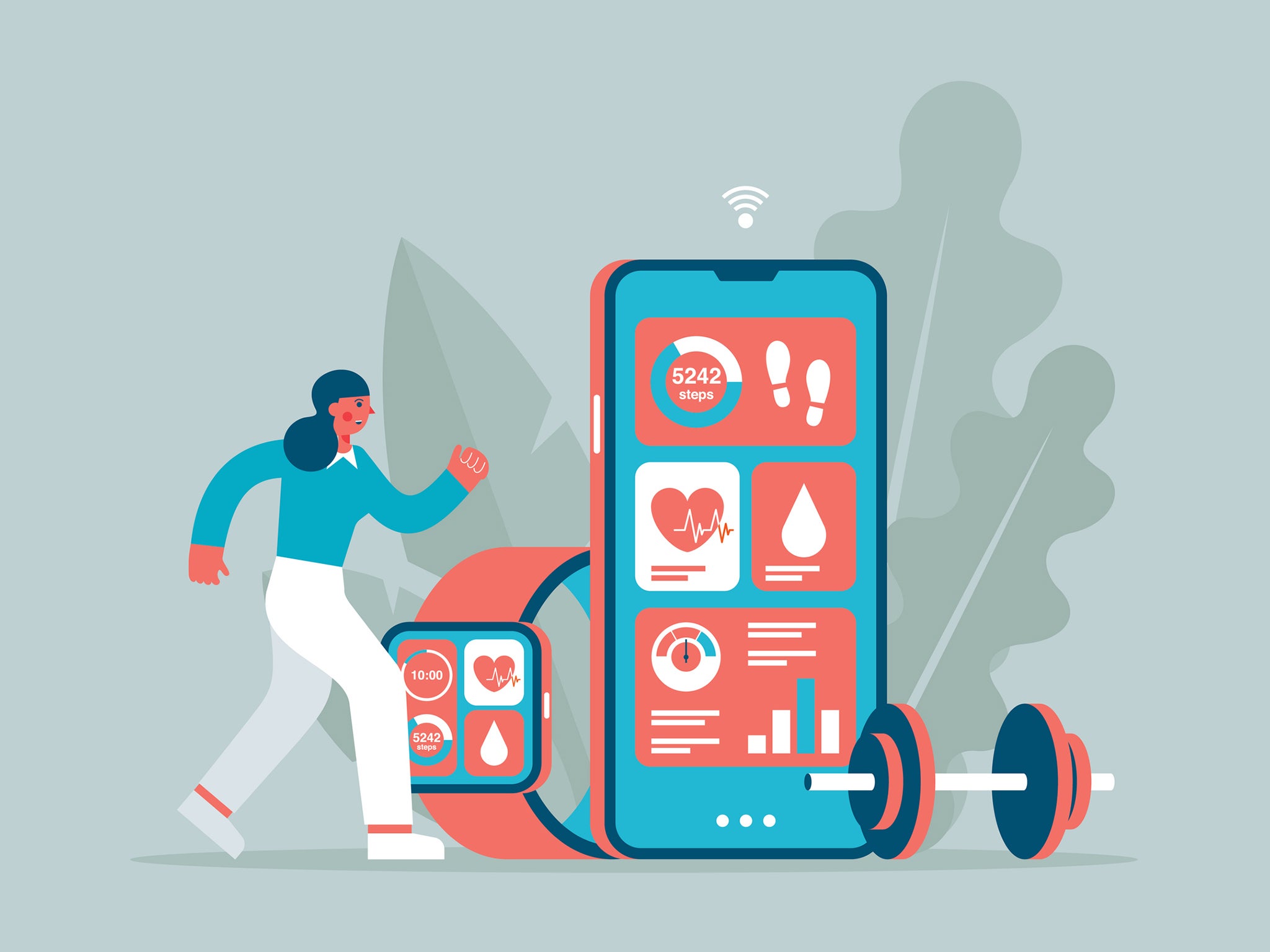How to have a great day at work: A fitness routine that still works eight hours later
In her regular column, business founder and wellness expert Nicola Elliott looks at one thing we can all do that will make our nine-to-five feel happier and healthier


I’ve finally found the perfect exercise. It doesn’t require changing into a gym kit, can be done at any time at little cost and is both time-efficient and gentle enough to do every day. It also works for your mental health as much as your physical health and will still have an effect on your wellbeing eight hours later.
What is this miracle fitness routine? Walking. And hurrah, you don’t even need to hit the treadmill to do it. In fact, according to chartered psychologist and author of Self-Care for Winter Suzy Reading, you’ll be better off if you don’t head to the gym because the key thing about getting maximum benefit out of walking is that it has to be done outside.
The reason that it’s such a good workout is that physically it’s more taxing overall on whole muscle groups, and being outside for approximately 20 minutes a day is crucial because the benefit of this movement is the green element to it. This is where you’re going to reap the mental health benefits for hours after you’ve done the actual walking bit.
Suzy explains how being outside and in nature has been scientifically proven to change the way your brain functions for the better. “By having access to some trees, birds and sky, you are dialling down the active part of the brain which is responsible for anxious thinking, and this opens up our ‘panoramic gaze’ and myopic vision, and it soothes the nervous system.”
Recent research confirms that walking in a natural environment has even more benefits for mental health, including reducing hostility, sadness and anger.
Timing your walk before work is key to get maximum benefits – ideally within a couple of hours of waking, certainly before lunch. This is because getting sunlight directly into the retina within the eyes kickstarts our circadian rhythm. This works even if it’s grey outside, so avoid wearing sunglasses if you’re out in the morning so the light can enter your eye, because the known effects of light on circadian rhythms are mediated by the retina.
Furthermore, it helps to regulate the production of serotonin, the brain’s happiness and calming chemical – the less sunlight you receive the less serotonin you’re able to access. Vitamin D plays an important role as serotonin levels are affected by it, and natural light is needed for the body to make more vitamin D.
Walking outside will have a direct effect on how well you sleep at night too, because of that connection with your circadian rhythm. Additionally, there are links between sunlight and immunity, and walking outside activates and increases cell movement around the body.
Does this work for city dwellers? Of course a woodland walk would be ideal, but a small urban park or even high street will absolutely suffice.
Suzy explains that if you’re feeling “Stuck – general life stuck or even just a one-off problem – this kind of outside movement has been proven to tap into problem-solving abilities as it makes us more resourceful and creative.”
In the hours that follow the walk, studies show you will feel more alert, yet drowsier when it comes to bedtime. You’re also less likely to reach for coffee and sugary snacks, more likely to make better food choices and ultimately more likely to stick to your daily walk, pushing those powerful uphill spirals.
And if you’re wondering if a jog would work in the same way, yes, but that also means getting changed and showered and I’m personally taking the shortcut to the same wellbeing win.
Nicola Elliott is the founder of the wellness brand NEOM, and her book, ‘The Four Ways to Wellbeing: Better Sleep. Less Stress. More Energy. Mood Boost’, is published by Penguin
Join our commenting forum
Join thought-provoking conversations, follow other Independent readers and see their replies
Comments


Bookmark popover
Removed from bookmarks